Shows

ePODstemologyDecolonising development economics: learning from IndiaThis episode’s guest is Dr Maria Bach, postdoctoral fellow at the University of Lausanne in Switzerland and host of Ceteris Never Paribus: the History of Economic Thought Podcast. She completed her PhD at King’s College in London, now available as a book with Cambridge University Press, Relocating Development Economics: The First Generation of Modern Indian Economists. The book excavates the overlooked history of Indian thinking about progress and growth, showcasing how a generation of thinkers there, unburden by the blinkers of colonialist ideology, reached the insights of today’s development policy a century ago. As you may have g...
2025-04-2859 min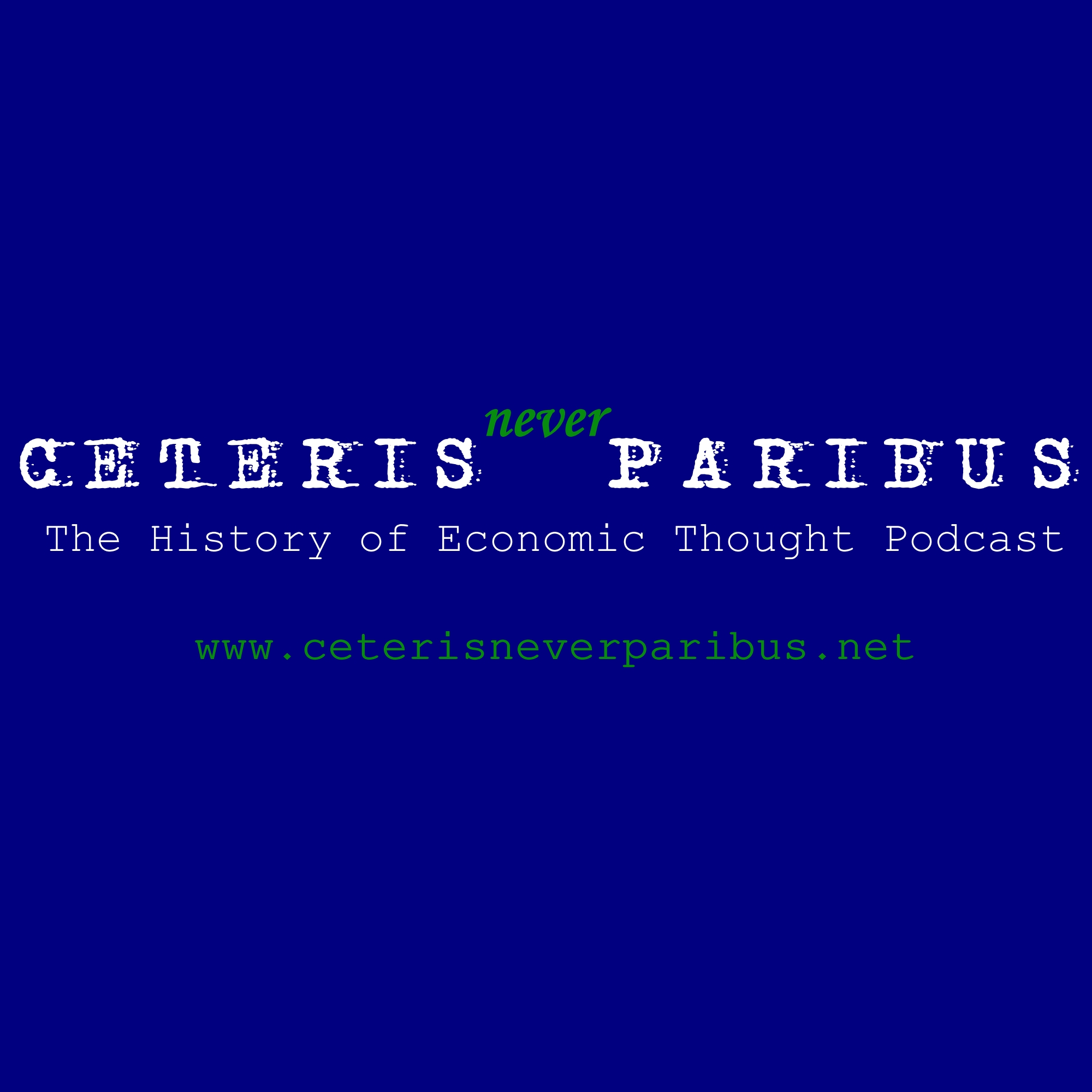
Ceteris Never Paribus: The History of Economic Thought PodcastSERIES ON SUPERVISION, PART IV – In conversation with Peter Boettke, a sort of PhD coach, Episode 46
Guest: Peter Boettke (George Mason University)
Host and Producer: Maria Bach (Centre Walras-Pareto, University of Lausanne)
Based on almost 2 years of interviews with current and former PhD students, supervisors along with lots and lots of conversations on supervision, I offer you a series of episodes on supervision.
In the first episode, I explore a series of critical “don’ts” that both PhD students and their supervisors should be aware of to ensure a healthier, more productive PhD journey. In the following episode, I will be offering up lots of solutions or rather the dos of supervision. Then there...
2025-04-031h 11
Allgemein - Ceteris Never Paribus: The History of Economic Thought PodcastSERIES ON SUPERVISION, PART IV – In conversation with Peter Boettke, a sort of PhD coach, Episode 46
Guest: Peter Boettke (George Mason University)
Host and Producer: Maria Bach (Centre Walras-Pareto, University of Lausanne)
Based on almost 2 years of interviews with current and former PhD students, supervisors along with lots and lots of conversations on supervision, I offer you a series of episodes on supervision.
In the first episode, I explore a series of critical “don’ts” that both PhD students and their supervisors should be aware of to ensure a healthier, more productive PhD journey. In the following episode, I will be offering up lots of solutions or rather the dos of supervision. Then there...
2025-04-031h 11
Allgemein - Ceteris Never Paribus: The History of Economic Thought PodcastSERIES ON SUPERVISION, PART V – The 10 Commandments of Supervision, Episode 47
Host and Producer: Maria Bach (Centre Walras-Pareto, University of Lausanne)
Based on almost 2 years of interviews with current and former PhD students, supervisors along with lots and lots of conversations on supervision, I offer you a series of episodes on supervision.
In the first episode, I explore a series of critical “don’ts” that both PhD students and their supervisors should be aware of to ensure a healthier, more productive PhD journey. In the following episode, I offer up lots of solutions or rather the dos of supervision. Then there will be an episode on all the cases...
2025-04-0310 min
Ceteris Never Paribus: The History of Economic Thought PodcastSERIES ON SUPERVISION, PART V – The 10 Commandments of Supervision, Episode 47
Host and Producer: Maria Bach (Centre Walras-Pareto, University of Lausanne)
Based on almost 2 years of interviews with current and former PhD students, supervisors along with lots and lots of conversations on supervision, I offer you a series of episodes on supervision.
In the first episode, I explore a series of critical “don’ts” that both PhD students and their supervisors should be aware of to ensure a healthier, more productive PhD journey. In the following episode, I offer up lots of solutions or rather the dos of supervision. Then there will be an episode on all the cases...
2025-04-0310 min
Allgemein - Ceteris Never Paribus: The History of Economic Thought PodcastSERIES ON SUPERVISION, PART III – The Inbetweens, Episode 45
Guests: Erwin Dekker (George Mason University), Carlos Eduardo Suprinyak (The American University of Paris), Pedro G. Duarte (Insper), Steven Medema (Duke University), Marianne Johnson (University of Wisconsin Oshkosh)
Host and Producer: Maria Bach (Centre Walras-Pareto, University of Lausanne)
Based on almost 2 years of interviews with current and former PhD students, supervisors along with lots and lots of conversations on supervision, I offer you a series of episodes on supervision.
In the first episode, I explore a series of critical “don’ts” that both PhD students and their supervisors should be aware of to ensure a healthier, more produc...
2025-04-0324 min
Ceteris Never Paribus: The History of Economic Thought PodcastSERIES ON SUPERVISION, PART III – The Inbetweens, Episode 45
Guests: Erwin Dekker (George Mason University), Carlos Eduardo Suprinyak (The American University of Paris), Pedro G. Duarte (Insper), Steven Medema (Duke University), Marianne Johnson (University of Wisconsin Oshkosh)
Host and Producer: Maria Bach (Centre Walras-Pareto, University of Lausanne)
Based on almost 2 years of interviews with current and former PhD students, supervisors along with lots and lots of conversations on supervision, I offer you a series of episodes on supervision.
In the first episode, I explore a series of critical “don’ts” that both PhD students and their supervisors should be aware of to ensure a healthier, more produc...
2025-04-0324 min
Allgemein - Ceteris Never Paribus: The History of Economic Thought PodcastSERIES ON SUPERVISION – PART II, The Dos of Supervision, Episode 44
Guests: Erwin Dekker (George Mason University), Charles Rose (PhD from King’s College London), Carlos Eduardo Suprinyak (The American University of Paris), Pedro G. Duarte (Insper), Ariane Dupont Kieffer (Université Paris 1), Luca Timponelli (Centre Walras Pareto, Unil), María Gutiérrez Ruan (Centre Walras Pareto, Unil), Elizaveta Burina (Université Paris 1), Léa Lakjaa (Université de Reims), Adèle Gaillard, (PHARE, Université Panthéon Sorbonne), Steven Medema (Duke University), Marianne Johnson (University of Wisconsin Oshkosh)
Host and Producer: Maria Bach (Centre Walras-Pareto, University of Lausanne)
Based on almost 2 years of interviews with current and former PhD students, supervisors along with lots and lo...
2025-04-031h 30
Ceteris Never Paribus: The History of Economic Thought PodcastSERIES ON SUPERVISION – PART II, The Dos of Supervision, Episode 44
Guests: Erwin Dekker (George Mason University), Charles Rose (PhD from King’s College London), Carlos Eduardo Suprinyak (The American University of Paris), Pedro G. Duarte (Insper), Ariane Dupont Kieffer (Université Paris 1), Luca Timponelli (Centre Walras Pareto, Unil), María Gutiérrez Ruan (Centre Walras Pareto, Unil), Elizaveta Burina (Université Paris 1), Léa Lakjaa (Université de Reims), Adèle Gaillard, (PHARE, Université Panthéon Sorbonne), Steven Medema (Duke University), Marianne Johnson (University of Wisconsin Oshkosh)
Host and Producer: Maria Bach (Centre Walras-Pareto, University of Lausanne)
Based on almost 2 years of interviews with current and former PhD students, supervisors along with lots and lo...
2025-04-031h 30
Allgemein - Ceteris Never Paribus: The History of Economic Thought PodcastSERIES ON SUPERVISION, PART I – The Don’ts of Supervision, Episode 43
Guests: Erwin Dekker (George Mason University), Charles Rose (PhD from King’s College London), Carlos Eduardo Suprinyak (The American University of Paris), Pedro G. Duarte (Insper), Ariane Dupont Kieffer (Université Paris 1), Luca Timponelli (Centre Walras Pareto, Unil), Justine Loulergue (PhD from Centre Walras Pareto, Unil), Elizaveta Burina (Université Paris 1)
Host and Producer: Maria Bach (Centre Walras-Pareto, University of Lausanne)
Based on almost 2 years of interviews with current and former PhD students and supervisors along with lots and lots of conversations on supervision, I offer you a series of episodes on supervision.
In this first episode, I explore a se...
2025-03-1959 min
Ceteris Never Paribus: The History of Economic Thought PodcastSERIES ON SUPERVISION, PART I – The Don’ts of Supervision, Episode 43
Guests: Erwin Dekker (George Mason University), Charles Rose (PhD from King’s College London), Carlos Eduardo Suprinyak (The American University of Paris), Pedro G. Duarte (Insper), Ariane Dupont Kieffer (Université Paris 1), Luca Timponelli (Centre Walras Pareto, Unil), Justine Loulergue (PhD from Centre Walras Pareto, Unil), Elizaveta Burina (Université Paris 1)
Host and Producer: Maria Bach (Centre Walras-Pareto, University of Lausanne)
Based on almost 2 years of interviews with current and former PhD students and supervisors along with lots and lots of conversations on supervision, I offer you a series of episodes on supervision.
In this first episode, I explore a se...
2025-03-1959 min
Ceteris Never Paribus: The History of Economic Thought PodcastTRAILER: Miniseries on Supervision – COMING SOON!!!
Check out this trailer for a miniseries on supervision coming very soon!
The voices featured in the trailer are Charles Rose, Pedro Garcia Duarte and Bianca Maria Fontana. Stay tuned for more thoughts, discussions and insightful voices!
Featured music (apart from the usual intro and outro music): Bright Morning Energy by LolaMoore License: Attribution 4.0
2024-12-1102 min
Allgemein - Ceteris Never Paribus: The History of Economic Thought PodcastTRAILER: Miniseries on Supervision – COMING SOON!!!
Check out this trailer for a miniseries on supervision coming very soon!
The voices featured in the trailer are Charles Rose, Pedro Garcia Duarte and Bianca Maria Fontana. Stay tuned for more thoughts, discussions and insightful voices!
Featured music (apart from the usual intro and outro music): Bright Morning Energy by LolaMoore License: Attribution 4.0
The post TRAILER: Miniseries on Supervision – COMING SOON!!! first appeared on Ceteris Never Paribus: The History of Economic Thought Podcast.
2024-12-1102 min
Ceteris Never Paribus: The History of Economic Thought PodcastAbout degrowth, breaking rules, writing and other things! Episode 42
Guest: Timothée Parrique (University of Lund)
Host and Producer: Maria Bach (University of Lausanne)
In this episode, Maria Bach interviews Timothée Parrique about his PhD thesis and book on the Political Economy of Degrowth. They also discuss the importance of writing skills, and breaking academic rules and disciplinary boundaries.
Here are Parrique’s favourite books on writing:
In episode 40, Raphaël Fèvre also discusses the importance of learning how to write.
If you’re interested in economics and planetary boundaries, you should check out episode 26 when we interviewed Herman Daly.
2024-08-131h 00
Allgemein - Ceteris Never Paribus: The History of Economic Thought PodcastAbout degrowth, breaking rules, writing and other things! Episode 42
Guest: Timothée Parrique (University of Lund)
Host and Producer: Maria Bach (University of Lausanne)
In this episode, Maria Bach interviews Timothée Parrique about his PhD thesis and book on the Political Economy of Degrowth. They also discuss the importance of writing skills, and breaking academic rules and disciplinary boundaries.
Here are Parrique’s favourite books on writing:
2024-08-131h 00
Plurale Perspektiven im Wirtschaftsunterricht#14 Postwachstum ist mehr als eine ceteris paribus-Annahme (Prof. Dr. Deimling)In Folge #14 bespricht Herr Prof. Dr. Deimling unter anderem folgende Fragen: Gibt es grünes Wachstum? Ist Wirtschaftswachstum Voraussetzung für Innovation, Arbeitsplätze und Wohlstand? Welche Unternehmensformen ermöglichen Nachhaltigkeit? Gibt es einen Wachstumszwang? Herr Deimling plädiert für Postwachstum, stellt aber auch klar, dass Postwachstum mehr als eine ceteris paribus-Annahme ist. Postwachstum kann nicht erreicht werden, indem lediglich die Wirtschaftsleistung (BIP) schrumpft. Es erfordert tiefgreifende Transformationen in unterschiedlichen Bereichen wie bspw. Arbeit, Produktion, Vermögensverteilung und Konsum.Die Folge kann – wie immer – auch ohne das Schulbuch angehört und nachvollzogen werden. Zusammenfassu...
2024-08-021h 20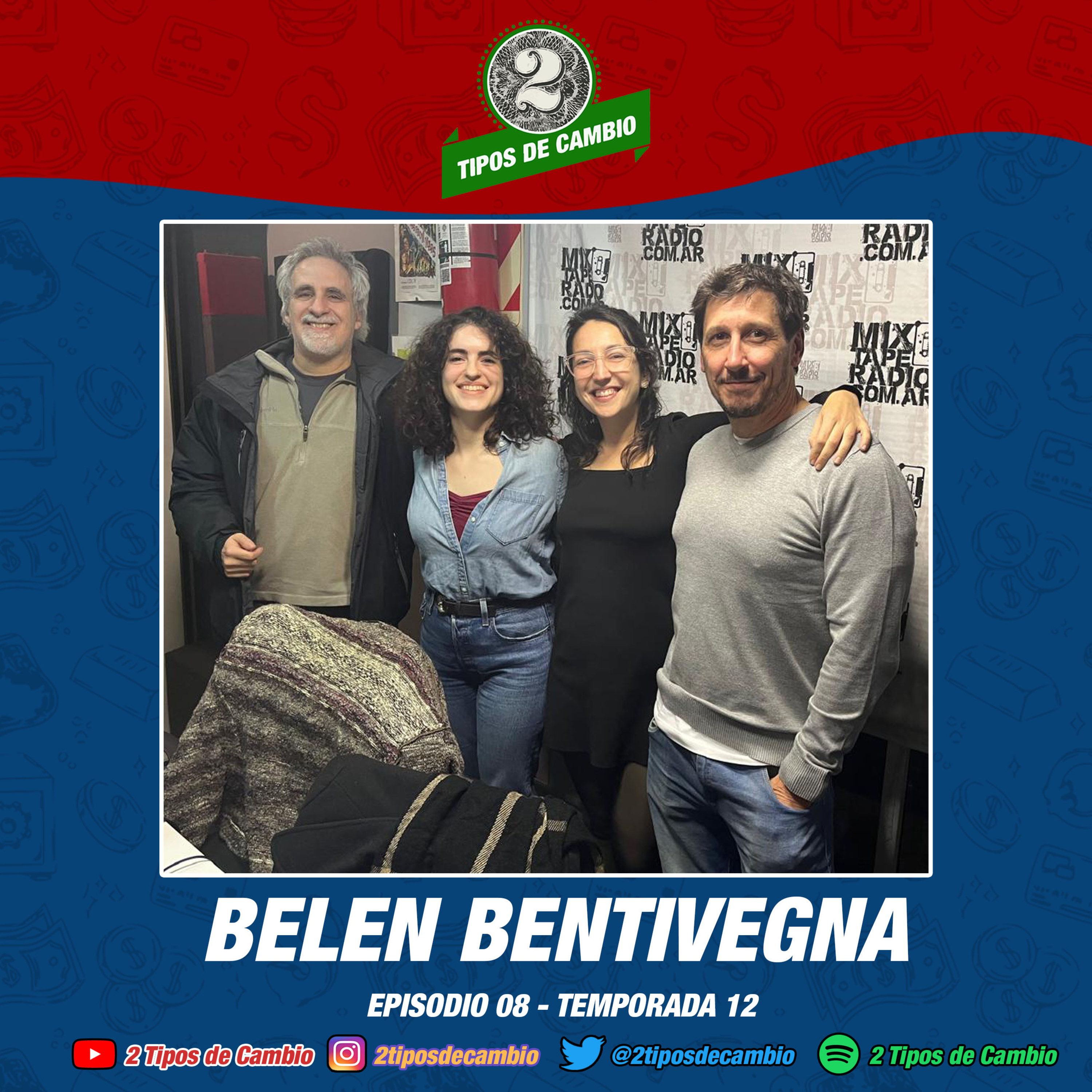
2 Tipos de CambioE08|S12 Belen Bentivegna - #jerga #ceteris #productivo💸 Esta semana EN 2 TIPOS DE CAMBIO 💸
Después de una quincena de descanso, volvemos con una invitada economista, docente y obsesiva del desarrollo productivo. Ella es Belen Bentivegna. 👩🏻🏫⚽️
Vamos a hablar deeee:
▪️ Jerga económica 👥💲
▪️ Historia de los CETERIS PARIBUS y presentación de nuevo tema musical! 💿👨🎤
🎙️Y todo lo que siempre nos pedís: estadísticas innecesarias, novedades académicas, noticias insólitas y más!
2024-05-2759 min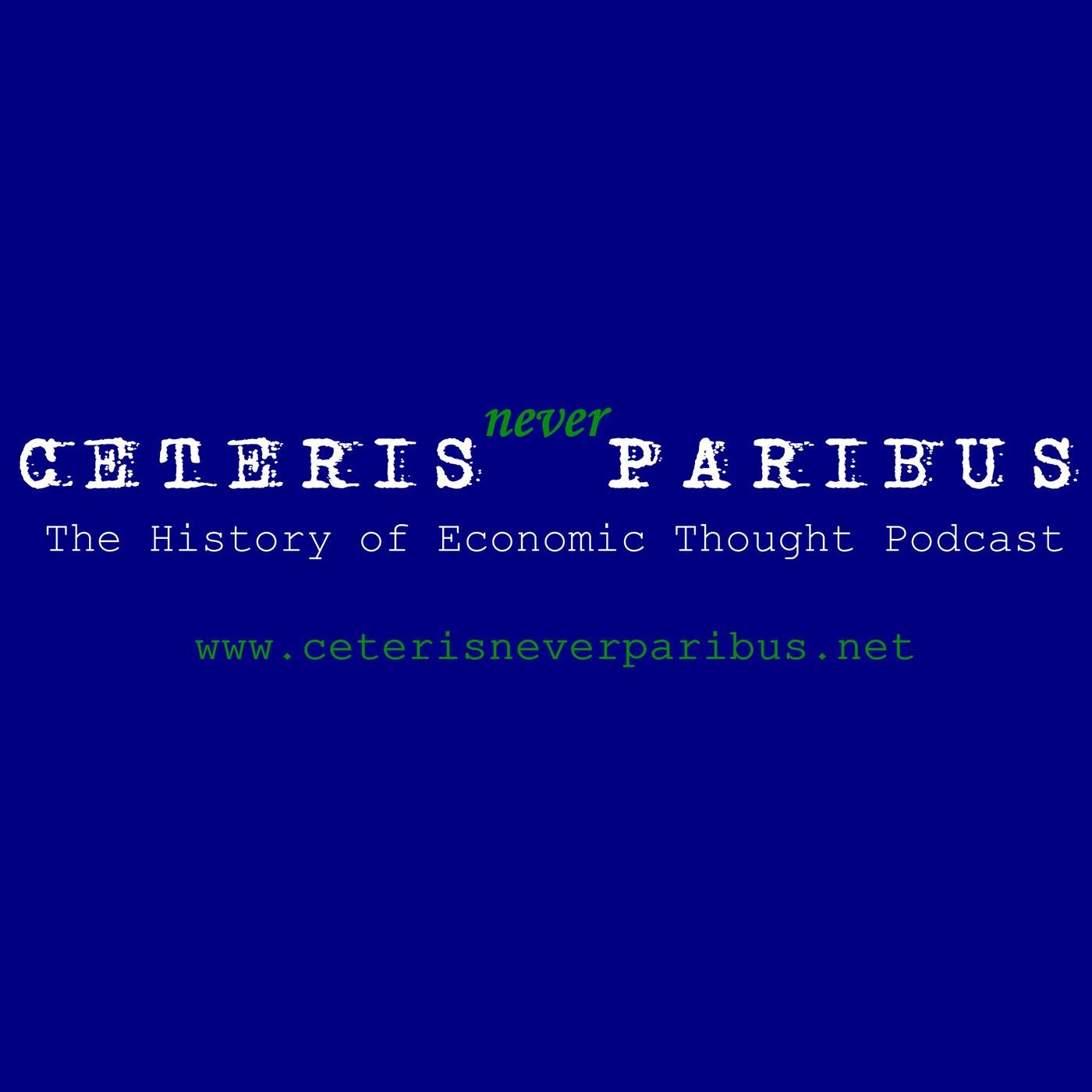
The ProgressiveDecolonising Development, Episode 41 Podcast: Ceteris Never Paribus: The History of Economic Thought Podcast (LS 29 · TOP 10% what is this?)Episode: Decolonising Development, Episode 41Pub date: 2024-04-11Get Podcast Transcript →powered by Listen411 - fast audio-to-text and summarization
Guests: Rahul A. Sirohi (Indian Institute of Technology Tirupati) and Sonya Surabhi Gupta (Jamia Milia Islamia)
Host and Producer: Maria Bach (Walras Pareto Centre, University of Lausanne)
In this episode, I talk to professors Sirohi’s and Gupta’s book on development discourses from India and Latin America.
As mentioned in the episode, here is the p...
2024-04-1953 min
Ceteris Never Paribus: The History of Economic Thought PodcastDecolonising Development, Episode 41
Guests: Rahul A. Sirohi (Indian Institute of Technology Tirupati) and Sonya Surabhi Gupta (Jamia Milia Islamia)
Host and Producer: Maria Bach (Walras Pareto Centre, University of Lausanne)
In this episode, I talk to professors Sirohi’s and Gupta’s book on development discourses from India and Latin America.
As mentioned in the episode, here is the poem translated at the beginning of the last chapter:
Problems of Underdevelopment
Monsieur Dupont calls you unculturedbecause you cannot tell who wasVictor’s Hugo’s favourite grandson.Herr Müller has started to scream
2024-04-1153 min
Allgemein - Ceteris Never Paribus: The History of Economic Thought PodcastDecolonising Development, Episode 41
Guests: Rahul A. Sirohi (Indian Institute of Technology Tirupati) and Sonya Surabhi Gupta (Jamia Milia Islamia)
Host and Producer: Maria Bach (Walras Pareto Centre, University of Lausanne)
In this episode, I talk to professors Sirohi’s and Gupta’s book on development discourses from India and Latin America.
As mentioned in the episode, here is the poem translated at the beginning of the last chapter:
Problems of Underdevelopment
Monsieur Dupont calls you unculturedbecause you cannot tell who wasVictor’s Hugo’s favourite grandson.Herr Müller has started to scream...
2024-04-1153 min
Ceteris Never Paribus: The History of Economic Thought PodcastA Political Economy of Power, Episode 40
Guest: Raphaël Fèvre (Université de Côte d’Azur)
Host and Producer: Maria Bach (Walras Pareto Centre, University of Lausanne)
In this episode, Maria talks to Raphaël Fèvre who published a book with Oxford University Press, pictured above, based on his PhD research.
For advice on writing a book, see the following books:
From Dissertation to Book
Revise: The Scholar-Writer’s Essential Guide to Tweaking, Editing, and Perfecting Your Manuscript
2024-03-0447 min
Allgemein - Ceteris Never Paribus: The History of Economic Thought PodcastA Political Economy of Power, Episode 40
Guest: Raphaël Fèvre (Université de Côte d’Azur)
Host and Producer: Maria Bach (Walras Pareto Centre, University of Lausanne)
In this episode, Maria talks to Raphaël Fèvre who published a book with Oxford University Press, pictured above, based on his PhD research.
For advice on writing a book, see the following books:
From Dissertation to Book
Revise: The Scholar-Writer’s Essential Guide to Tweaking, Editing, and Perfecting Your Manuscript
The post A Political Economy of Power, Episode 40 first appeared on Ceteris Never Paribus: The History of Economic Thought Podcast.
2024-03-0447 min
Allgemein - Ceteris Never Paribus: The History of Economic Thought PodcastThe (ignored) blindspots of International Political Economy, Episode 39
Guest: Eric Helleiner (University of Waterloo)
Host and Producer: Maria Bach (University of Lausanne)
2024-02-2756 min
Ceteris Never Paribus: The History of Economic Thought PodcastThe (ignored) blindspots of International Political Economy, Episode 39
Guest: Eric Helleiner (University of Waterloo)
Host and Producer: Maria Bach (University of Lausanne)
In this episode, Maria interviews Eric Helleiner to discuss his current research on writing a deeper global history of the field of International Political Economy. We mainly discuss his latest two books pictured above, The Contested World Economy and The Neomercantilists.
2024-02-2756 min
Ceteris Never Paribus: The History of Economic Thought PodcastThe Agrarian Question in India, Episode 38Guest: Srishti Yadav (Azim Premji University, Bengaluru)
Host and Producer: Maria Bach (Walras Pareto Centre, University of Lausanne)
In this episode Maria talks to Srishti about her heterodox economics studies, her work on Paradigms in Economics and her book project on the agrarian question in India.
Check out the following links to Srishti's research:
Yadav, S. (2022) ‘Caste, diversification, and the contemporary agrarian question in India: A field perspective’, Journal of Agrarian Change, 22(4), pp. 651–672.
A video presentation of the above article for the Foundation of Agrarian Studies seminar series.
Yadav, S. (2022) ‘Reviewing Petty Commodity Production: Toward a Unified Marxist Conception’, Review of Radical...
2023-12-1139 min
Ceteris Never Paribus: The History of Economic Thought PodcastThe History of Counting Where Few Have Looked Before, Episode 37Guest: Cecilia Lanata-Briones (Warwick University)
Host and Producer: Maria Bach (Walras Pareto Centre, University of Lausanne)
Bunge, A. E. (1918): «Costo de la vida en la Argentina, de 1910 a 1917». Revista de Economía Argentina 1 (1), pp. 39-63
In this episode, Maria talks to her co-author and team member of a new project on the history of national accounting in what we call the Global South today. Cecilia talks about her thesis on the history of the cost-of-living index in Argentina, a recent co-edited book and our new project.
To check out some of Cecilia's work, see two of her articles linked below:
Lanata-Br...
2023-12-1138 min
Bildung Einfach! Der Podcast®Wirtschaft Einfach! Was ist Ceteris Paribus?Wenn Ökonomen "ceteris paribus" sagen, meinen sie damit die direkte Wirkung von X auf Y, während sie davon ausgehen, dass der Rest der Welt stillsteht. Ceteris ist lateinisch und bedeutet "andere Dinge". Paribus meint "gleich". Die wörtliche Übersetzung lautet also "andere Dinge, die gleich sind”. In der Ökonomie wird jedoch “ceteris paribus” im Allgemeinen so verstanden, dass alle anderen Dinge gleich oder konstant bleiben. Mehr zur Anwendung dazu in der Volkswirtschaftslehre, hört ihr in diesem Podcast. Viel Spaß.
2023-10-1308 min
Ceteris Never Paribus: The History of Economic Thought PodcastElucidating the Role of Value Judgments in Normative Economics, Episode 36Guest: Nestor Lovera (Université de Reims Champagne-Ardenne)
Host and Producer: Maria Bach (Centre Walras-Pareto, University of Lausanne)
In this episode, Maria interviews Nestor Lovera from the Université of Reims Champagne-Ardenne about his thesis and latest projects. For a summary of Nestor's thesis, click here.
Check out Nestor's new podcast (in French) on the history of economic thought: https://l-heure-d-unepauseconomique.fr/
2023-10-1343 min
Ceteris Never Paribus: The History of Economic Thought PodcastCWP Stories, Part II, Episode 35Guests: Cléo Chassonnery-Zaïgouche (Assistant Professor of Economics, University of Bologna), Justine Loulergue (PhD Student, Centre d'Économie de la Sorbonne, Paris 1 & Centre Walras Pareto, Unil), María Gutiérrez Ruan (PhD Student, Centre Walras Pareto, Unil), Tatiana Fauconnet (PhD Student, Centre Walras Pareto, Unil) and Biancamaria Fontana (Emeritus Professor, Centre Walras Pareto, Unil)
Host and Producer: Maria Bach (Centre Walras-Pareto, University of Lausanne)
We’re back with a second episode with existing and former members of the Walras Pareto Centre. If you didn’t listen to part I, I recommend listening to part I first.
This time we will hear...
2023-09-261h 00
Ceteris Never Paribus: The History of Economic Thought PodcastSlavery, Capitalism and the Industrial Revolution, Episode 34Guests: Maxine Berg (Professor, Warwick University) and Pat Hudson (Professor, Cardiff University)
Host and Producer: Maria Bach (Centre Walras-Pareto, University of Lausanne)
In this episode, I interview Maxine Berg and Pat Hudson about their recent book on the role of slavery in capitalist development and the British industrial revolution.
To check out Eric Williams book on slavery and capitalism, click here.
2023-08-161h 06
Ceteris Never Paribus: The History of Economic Thought PodcastCWP Stories, Part I, Episode 33Guests: Cléo Chassonnery-Zaïgouche (Assistant Professor of Economics, University of Bologna), Justine Loulergue (PhD Student, Centre d'Économie de la Sorbonne, Paris 1 & Centre Walras Pareto, Unil), María Gutiérrez Ruan (PhD Student, Centre Walras Pareto, Unil), Tatiana Fauconnet (PhD Student, Centre Walras Pareto, Unil) and Biancamaria Fontana (Emeritus Professor, Centre Walras Pareto, Unil)
Host and Producer: Maria Bach (Centre Walras-Pareto, University of Lausanne)
In this episode, I share some conversations I had with some existing and old members of the Walras Pareto Centre (CWP) in Lausanne. These are raw conversations from researchers in the history of economics and polit...
2023-07-2742 min
Líderes de Marketing & Ventas#102 Giovanni Bernardi, Head of Sales en BizAway ᐅ Ceteris paribus: loc. latina para gestionar el equipo comercialEn este capítulo Pau entrevista a Giovanni Bernardi, Head of Sales en BizAway, una agencia de viaje corporativa digital.
En la conversación con Giovanni hablamos del uso de una locución latina, "ceteris paribus", para gestionar mejor las afirmaciones del equipo comercial sobre lo que funciona y lo que no. Además, también nos cuenta cómo funcionó una alianza con el Politecnico de Milán, lo que supuso una alianza estratégica con muy buenos resultados en brand awareness. Y por último, abordamos cómo llegar al decisor final de forma efectiva.
Puedes encontrar el podcast y suscribir...
2023-07-1216 min
Oxide and FriendsOkay, Doomer: A Rebuttal to AI Doom-mongeringBryan and Adam offer a rebuttal to the AI doomerism that has been gaining volume. And--hoo-boy--this one had some range. Heaven’s Gate, ceteris paribus, WWII, derpy security robots, press-fit DIMM sockets, async Rust, etc. And optimistic as always: the hardware and systems AI doomers imagine are incredibly hard to get right; let’s see AIs help us before we worry about our own obsolescence!On this episode Bryan Cantrill and Adam Leventhal were on a rant; but we welcome others on-stage!Some of the topics we hit on, in the order that we hit them...
2023-06-271h 11
The ProgressiveCléo Chassonnery-Zaïgouche, Episode 31 Podcast: Ceteris Never Paribus: The History of Economic Thought Podcast (LS 29 · TOP 10% what is this?)Episode: Cléo Chassonnery-Zaïgouche, Episode 31Pub date: 2023-04-11Get Podcast Transcript →powered by Listen411 - fast audio-to-text and summarizationGuest: Cléo Chassonnery-Zaïgouche (Assistant Professor of Economics, University of Bologna)
Host and Producer: Maria Bach (Centre Walras-Pareto, University of Lausanne)
In this episode, I invited Cléo Chassonnery-Zaïgouche to talk about her new book project on the history of discrimination in economics, partly based on her PhD thesis.
If you're interested in her work...
2023-04-2629 min
Ceteris Never Paribus: The History of Economic Thought PodcastThe Centre for the History of Knowledge (LUCK), Episode 32Guests: Johan Östling, LUCK's director, the two deputy directors Anna Nilsson Hammar and David Larsson Heidenblad, as well as a PhD student at the centre, Evelina Kallträsk.
Host and Producer: Maria Bach (Centre Walras-Pareto, University of Lausanne)
From left to right: Anna Nilsson Hammar, Johan Östling, Evelina Kallträsk and David Larsson Heidenblad.
In this episode, I spoke to several members of the History of Knowledge Centre at the University of Lund, or LUCK for short.
We discuss what is the history of knowledge and how its approaches might be useful for historians of economics.
To check out their publ...
2023-04-2444 min
Ceteris Never Paribus: The History of Economic Thought PodcastCléo Chassonnery-Zaïgouche, Episode 31Guest: Cléo Chassonnery-Zaïgouche (Assistant Professor of Economics, University of Bologna)
Host and Producer: Maria Bach (Centre Walras-Pareto, University of Lausanne)
In this episode, I invited Cléo Chassonnery-Zaïgouche to talk about her new book project on the history of discrimination in economics, partly based on her PhD thesis.
If you're interested in her work, check out her website here.
Featured music (apart from the usual intro and outro music): Sound by Alyonka.
2023-04-1129 min
Ceteris Never Paribus: The History of Economic Thought PodcastExit Capitalism! A New Board Game, Episode 30Guest: François Allisson (Centre Walras-Pareto, University of Lausanne)
Host and Producer: Maria Bach (Centre Walras-Pareto, University of Lausanne)
In this episode, I invited François Allisson to talk to us about a game he made with some of his students called Sortons du capitalisme ! or Exit Capitalism! in English.
Two cards from the game. Translation of titles: Trust Fund Baby (left) and The Theory of the Dress (right). For further explanation in English, listen to the episode.
Thanks to Justine Loulergue, Thomas Bouchet, Etienne Furrer and Sina Badiei for agreeing to be recorded when we played the game at th...
2023-03-2128 min
Ceteris Never Paribus: The History of Economic Thought PodcastInequality: Part II, Episode 29Guests: Erik Bengtsson (Lund University), Pat Hudson (Cardiff University) and Keith Tribe (Tartu University)
Host and Producer: Maria Bach (Centre Walras-Pareto, University of Lausanne)
Erik Bengtsson, an economic historian of Sweden, refers to this cartoon which depicts the parliament in session when an invisible hand writes "General Strike" on the board published in a national newspaper, Söndags Nisse in 1906. Taken from Fredrik Ström's Arbetets söner: text och bilder ur den svenska arbetarrörelsens saga. Third Edition. Steinsviks bokförlag AB, 1959.
As we heard in part one of our series on inequality, researchers looking at inequality urge people to lo...
2023-03-1554 min
Ceteris Never Paribus: The History of Economic Thought PodcastInequality: Part I, Episode 28Guests: Poornima Paidipaty (King's College, London), Pedro Ramos Pinto (University of Cambridge), Dan Hirschman (Cornell University), Christian O. Christiansen (Åarhus University) and Keith Tribe (Tartu University)
Host and Producer: Maria Bach (Centre Walras-Pareto, University of Lausanne)
In this two part series on inequality, we will be talking about moments during the history of researching inequality. In this first part, we explore different ways people have thought about inequality and how it is measured, and the possible impacts that this thinking and measurement has on our economies and policies. In part two, to be released soon, we look at why and h...
2023-03-141h 01
MINUTO IMOBILIÁRIO | VIDA IMOBILIÁRIACETERIS PARIBUS... ANTÓNIO COSTA! | MI#102Ceteris Paribus é a expressão para avaliar o efeito económico de uma variável, isolando outros efeitos ou variações.No último Almoço Vida Imobiliária, os economistas João Duque e António Ramalho fizeram uma excelentíssima intervenção, pautado por um otimismo prudente, sobre o qual seguidamente explano!SUBSCREVA A [Vi] E ESTEJA A PAR DAS NOVIDADES:+ eventos: https://iberinmo.com/events/+ notícias: http://vidaimobiliaria.com----------------Disclaimer:As opiniões presentes nos Vídeos de Editorial da Vida Imobiliária são da total responsabilid...
2023-03-0602 min
The Behavioral Economics in Marketing's PodcastCeteris Paribus | Definition Minute | Behavioral Economics in Marketing PodcastCeteris Paribus | Ceteris paribus is a Latin phrase that means "all other things being equal or "holding other things constant." In economics, ceteris paribus is a statement about the causal, empirical or logical relationship between two variables, phenomena or states of affair when all other variables, phenomena or states of affair are held constant.
📎 Definition Minute is a new subset of the Behavioral Economics in Marketing podcast. In these mini-episodes, I will define economic theories, in a minute or two. The topics will be review, introductory or discrete in nature.
Behavioral Economics in Marketing Podcast | Unders...
2023-01-0503 min
Finanzas IQ Costa RicaCeteris paribusEn este episodio te explico el significado de ceteris paribus y cómo se aplica en las decisiones financieras que tomas en el día a día. Recordá seguirme en IG como @finanzasiqcr
---
Send in a voice message: https://podcasters.spotify.com/pod/show/finanzasiqcr/message
2022-07-2609 min
Ceteris Never Paribus: The History of Economic Thought PodcastBook Panel Jan Tinbergen and the Rise of Economic Expertise, Episode 27Guests: James Heckman, Esther-Mirjam Sent, Philip Hans Franses and Erwin DekkerHosted by Reinhard Schumacher and Arjo Klamer
In this episode we present a book panel on the book Jan Tinbergen (1903-1994) and the Rise of Economic Expertise (CUP, 2021) by our regular host Erwin Dekker. Reinhard Schumacher provides a brief introduction to the panel which is chaired by Arjo Klamer, Professor of Cultural Economics at the Erasmus University Rotterdam. The panel opens with reflections on the book and the legacy of Jan Tinbergen, the first Nobel Prize winner in Economics and famous econometrician, by another Nobel Laureate James Heckman, Professor of...
2021-08-301h 02
Ceteris Never Paribus: The History of Economic Thought PodcastA cataclysm sentence for economics, Episode 26Guests: Peter Bent, François Allisson, Herman Daly and Sara Stevano (see below for more information).Host and Producer: Maria Bach, Centre Walras Pareto, Unil, Lasuanne (former Assistant Professor of Economics at the American University of Paris)Guest hosts: Wilhelm Aminoff, Wyatt DeLong, Farrah Aridou, Jonathan Noulowe II and Paul Harding, students of a history of economics course at the American University of Paris.
Inspired by Radiolab's episode on the cataclysm sentence, this episode explores whether we could find a cataclysm sentence for economics. Radiolab had found out about the famous and award winning physicist, Richard Feynman, who in the 60s...
2021-05-2753 min
POX - POCO ORTODOXASCeteris paribus; inflación, el Club de Paris y los chismes ! + Entrevista con Nico ZeollaCuatro mujeres economistas te explican de qué se trata el mágico Ceteris Paribus en la economía. Además, repasamos el último dato inflacionario, la deuda con el Club de París y debatimos acerca de la importancia de los chismes en la oficina, ¿se reemplaza por grupo de w up con el teletrabajo? Además, hablamos con el Dr. Nicolás Zeolla acerca de los problemas financieros de la región y el crédito del FMI!
2021-04-2146 min
Ceteris Never Paribus: The History of Economic Thought PodcastCeteris Never Paribus - James Buchanan and the Soul of Classical Political EconomyGuests: Alain Marciano and Peter J. BoettkeHosted and produced by Erwin Dekker
In this episode, Erwin talks with Alain Marciano and Pete Boettke about The Soul of Classical Political Economy a book they co-edited with archival material from the James Buchanan archives located at George Mason University. James Buchanan, Nobel Laureate in 1986 was an American economist who started as public finance scholar, who established the field of public choice and pioneered the constitutional political economy approach. They discuss the formation of the archives since Buchanan's death in 2013, his role in the development of the Virginia School of Political Economy, his a...
2021-03-1557 min
Premier PodcastCeteris Paribus E110 @CPLPodcastMike Miller chats with NSXI's very own Aria and Felix of Forge's Board.
2021-02-251h 15
Ceteris Never Paribus: The History of Economic Thought PodcastRelocating Modern Science with Kapil Raj, Episode 24Guest: Kapil RajHost and Producer: Maria Bach
Join Maria Bach for an interview with Kapil Raj about his approach in the history of science. Dr. Raj is Professor of the History of Science at the École des Hautes Études en Sciences Sociales (The School for Advanced Studies in the Social Sciences) in Paris. In particular, they discuss Raj's book Relocating Modern Science. Links to works and institutions mentioned: 1. The Go Between by L.P. Hartley 2. The Lund Centre for History of Knowledge (LUCK)
2021-02-041h 07
MediespanarnaAllt annat likaCeteris paribus – allt annat lika. Erik tar upp tre exempel på hur argument (i diskussioner) eller ändring av innehåll (i en produktion) endast ger effekt om de består i ett betydelsebärande element.
2020-12-1326 min
Ceteris Never Paribus: The History of Economic Thought PodcastGerman Socio-Economics, Episode 23Guests: Stefan Kolev and Mark McAdamHosted and produced by Reinhard Schumacher and Erwin Dekker
In this episode, Reinhard and Erwin talk with Stefan Kolev and Mark McAdam about the recent translation of eight classic articles in the tradition of German Socio-Economics including work by Georg Simmel, Joseph Schumpeter, Gustav Schmoller and Ferdinand Tönnies. These articles were picked from the rich archive of Schmollers Jahrbuch (currently Journal of Contextual Economics). They discuss the best way to understand the German tradition of Socio-Economics, the helpfulness of the Historical School label, how institutional change is best studied, and how relevant this tradition of...
2020-11-231h 03
Monarch Human Performance PodcastJoseph Warwick (Ceteris Paribus Performance): Training Practices within British Fire Fighters.Joe Warwick is an experienced Strength and Conditioning coach having previously worked in the Academy system at London Wasps before being appointed as the Head of Strength and Conditioning/performance manager for Chelsea FC Women's team. Looking for a new challenge Joe transitioned in to a career as a firefighter with the London Fire Brigade.
In addition to working as a fulltime firefighter Joe is also a student at University College London where he is undertaking a MSc Sport, Health and Exercise Medicine, Where he is engaged in key research within first responder organisations....
2020-11-1334 min
MRX Lab#12 – Ceteris Paribus (and Other Economic Principles for Insights)In this episode of the MRX Lab podcast from FlexMR, we talk about the economic principles that are relevant to the insights industry. We start by defining the key differences between behavioural and more traditional economics, as well as exploring how the two fields have blurred lines of enquiry in the past.
Over the second half of the episode, we dive into a number of key economic ideas and how they relate to the work researchers undertake – from marginality to calculating cost, understanding the trade-offs people make to how incentives change behaviours. Importantly, we draw conclusions about th...
2020-09-0809 min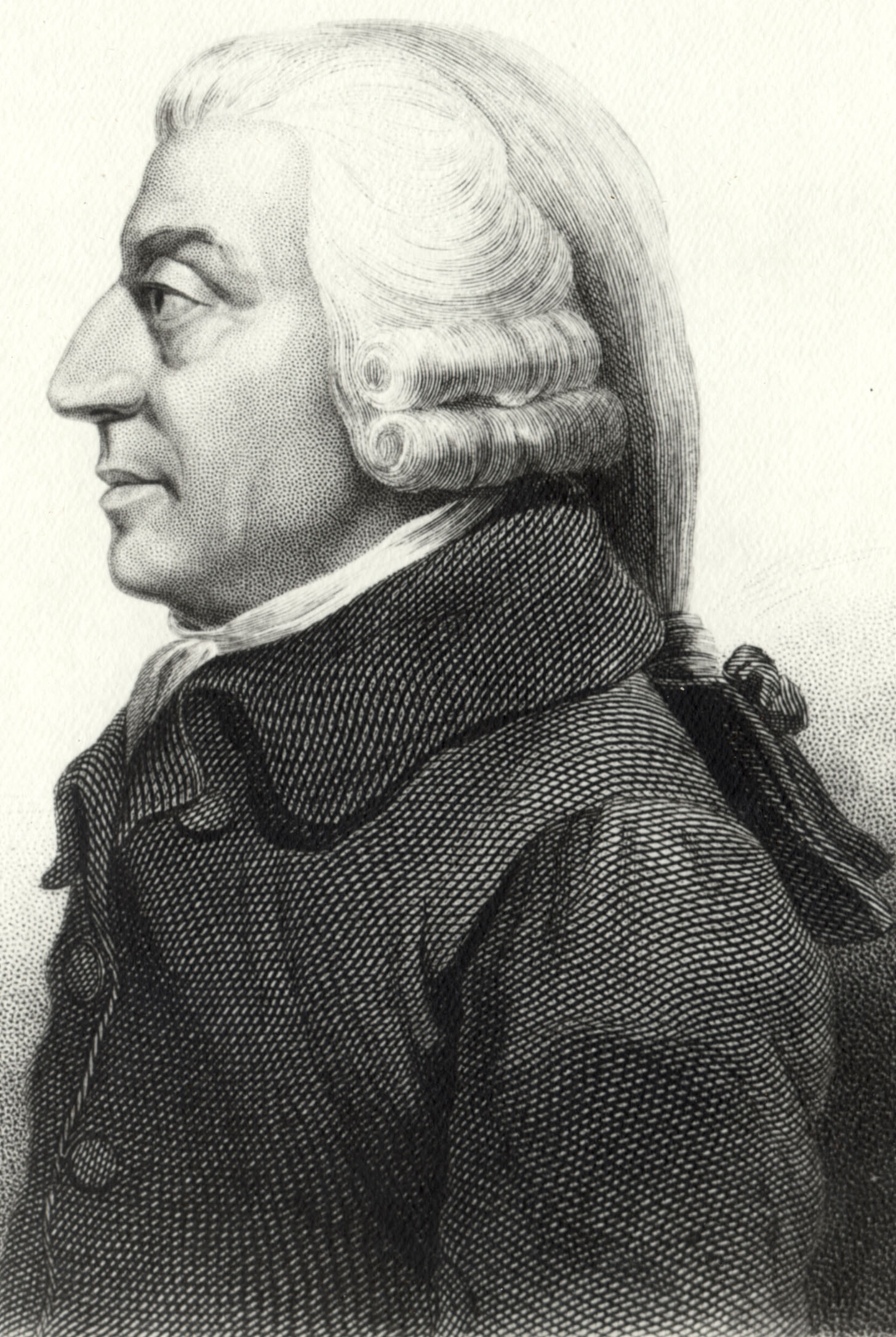
Smith and Marx Walk into a Bar: A History of Economics PodcastEpisode Thirty Five: Jennifer JhunIn this episode, Scott and Gerardo and new co-host, Sarvnaz Lotfi, are joined by Jennifer Jhun, Assistant Professor of Philosophy at Duke University and Faculty Fellow with Duke's Center for the History of Political Economy. The discussion revolves primarily around the uses and abuses of modeling in economics and other fields, such as epidemiology, the usefulness of models for policy purposes, and the significance of ceteris paribus clauses and equilibrium theorizing in economics. Smith and Marx Walk into a Bar is supported by a grant from the History of Economics Society: http://historyofeconomics.org
2020-08-151h 01
Ceteris Never Paribus: The History of Economic Thought PodcastMarginalised VoicesGuests: Jaci Eisenberg, Gerardo Serra and Sharmin KhodaijiHosted and produced by Maria Bach
In this episode, Maria interviews three scholars who study underrepresented or what she calls marginalised voices in the history of policy and economics. They discuss why they came to study such lesser known figures and how the research can give us new perspectives. They also share the difficulties and constraints that they face. Jaci Eisenberg studied American women who contributed to the League of Nations. Gerardo Serra studies the history of economics and statistics in 20th century Ghana. Sharmin Khodaiji researches the institutionalisation of political economy in In...
2020-07-1651 min
Ceteris Paribus#WP01 - Inflação em tempos de PandemiaHoje, inauguramos um novo formato aqui no Ceteris Paribus: o WP da semana! Um breve episódio comentando um artigo recém publicado em economia. Hoje, falamos sobre "Inflation with Covid Consumption Baskets" de Alberto Cavallo, e dos desafios de medir a inflação no meio de uma pandemia. Link para o WP: nber.org/papers/w27352pdf Nos siga no Twitter: @CeterisPodcast e @LucasWarwar
2020-06-2109 min
Ceteris Paribus#01 - Quem foi o primeiro economista? Dos Gregos aos fisiocratas.Seja muito bem-vindo e bem-vinda ao Ceteris Paribus, um Podcast sobre Economia e divulgação acadêmica! Eu sou o @LucasWarwar e te convido a me acompanhar em uma jornada sobre os grandes economistas da História, suas ideias, teorias e contribuições! Nesse primeiro episódio, Vamos da Grécia Antiga à França do século XVIII, passando pelos principais "economistas" antes de Adam Smith!
2020-06-1721 min 2020-06-1600 min
2020-06-1600 min
Ceteris Never Paribus: The History of Economic Thought PodcastTill Düppe on Economics in the German Democratic Republic (East Germany), Episode 21Guest: Till DüppeHosted and produced by Reinhard Schumacher
In this episode, Till Düppe talks with Reinhard about the development of Economics in the German Democratic Republic (GDR), better known as East Germany – a state that existed from 1948 until 1990. We discuss Till’s general approach of historical epistemology of economics before discussing in detail the development of Marxist-Leninist economics in the GDR from its beginning to its abrupt end in 1990. Till also compares this system of knowledge with economics before and after the GDR. Additionally, we discuss some methodological approaches, such as Karl Mannheim’s concept of generations and institut...
2020-05-151h 10
Colour-Fit ChatEpisode 20: Performance insights with me on the Ceteris Paribus Performance podcastI discuss all things performance, including nutrition, periodisation & influencing leaders with host Joe Warwick.
2020-04-291h 02
Ceteris Never Paribus: The History of Economic Thought PodcastParenting in AcademiaHosts: Maria Bach and Reinhard SchumacherProduction: Maria Bach
In this episode, we interview Beatrice Cherrier to talk about what it is like being a parent in academia - the ups, the downs and all the things we can do to make life and work easier.
2020-04-071h 05
Coffernado 卷 Читаю книги за Вас第22 ч1 Голая Экономика. Разоблачение унылой наукиКапитализм или социализм? Так ли все хорошо в Швеции? Почему цена как и деньги не имеют значения? Об этом сегодня и поговорим. Книга: Голая Экономика. Разоблачение унылой науки; Автор Чарльз Уилан.
04:00 Чжоу Эньлай: Слишком рано говорить про последствия Французской Революции.
04:40 Видео: TED "Экономист заходит в бар"
06:08 Видео: Юрий Дудь и Сергей Гуриев. Интервью
07:18 Вставка: Стас, тупо лучше!
07:33 Черчилль про Демократию
08:55 Том Соуел: Thomas Sowell: “There are no solutions, only trade-offs”
09:44 Милтон Фридман
09:50 Провал Рынка (Фиаско рынка)
15:05 Плэйлист: Justice. Philosophy Lecture. Harvard. Michael Sandel
15:15 Плэйлист: Справедливоть. Лекция по Философии. Гаврвард. Перевод Vert Didier.
16:29 Don't confuse a will for the deed
17:27 Адам Смит
17:50 Книга: Теория нравственных чувств (The Theory of Moral Sentiments)
17:58 Книга: Исследование о природе и причинах богатства народов (An Inquiry into the Nature and Causes of the Wealth of Nations)
21:08 Ищите на YouTube: Dave Rubin Sweden
21:27 Книга: Debunking Utopia: Exposing the Myth of Nordic Socialism by Nima Sanandaji
22:18 Warren Buffett
22:30 Jordan Peterson, Sam Harris, Ben Shapiro, Gary Vee
23:31 Confirmation bias – Склонность к подтверждению своей точки зрения
22:45 Charlie Munger: “I never allow myself to have an opinion on anything that I don't know the other side's argument better than they do."
24:40 Ceteris paribus – при прочих равных условиях
25:15 Предположим, что у нас есть открывашка
...
Остальные ссылки к сожалению здесь не помещаются. Все оставшиеся ссылки как и сам подкаст в полностью текстовой форме смотрите на сайте: https://coffernado.com/2020/03/04/podcast22/
Соц. сети:
Мой Instagram
YouTube канал
Twitter
Группа Вк
2020-03-041h 26
Ceteris Never Paribus: The History of Economic Thought PodcastSouth Asian Intellectual History with Andrew Sartori, Episode 19Guest: Andrew SartoriHosted and produced by Maria Bach
In this episode, Maria shares a recent interview with Andrew Sartori, an intellectual historian at NYU. Andrew discusses his work in South Asian Intellectual History and how he ended up in this relatively small field when he started. He also talks about how he deals with the international diffusion of ideas. Finally, they debate the need to find a distinct Indian way of thinking and how this perceived need makes it hard to research in this area of study. Check out his publications here.
2020-02-0551 min
REVISE A-Level Economics - A podcast by Seneca LearningNature of Economics: Methodology & Ceteris Paribus 💭- A Level Economics Learning & RevisionEllen looks at economic methodology and ceteris paribus for your A Level Economics exam. In this episode, she will look at the importance of ceteris paribus in economic models. Ideal for preparing you for your A Level Economics exam .
Click here for the full course, or visit this link: http://bit.ly/2FQarl1
2020-01-1502 min
Ceteris Never Paribus: The History of Economic Thought PodcastDennis Rasmussen on David Hume and Adam Smith, Episode 18Guest: Dennis RasmussenHosted and produced by Reinhard Schumacher
In this episode, Dennis Rasmussen talks with Reinhard about David Hume and Adam Smith. The episode focuses on Dennis’s book The Infidel and the Professor: David Hume, Adam Smith, and the Friendship that Shaped Modern Thought. We discuss the Scottish Enlightenment, Hume’s and Smith’s lives, their mutual influence, and friendship in science. Additionally, Dennis talks about Adam Smith and economic inequality, as well as writing for a broader academic audience and for the general public.
Dennis is a professor of Political Science at the Maxwell School of Citizenship and Public...
2019-12-031h 18
Ceteris Never Paribus: The History of Economic Thought PodcastThe Mont Pelerin Society and the Origins of Neoliberalism with Ola Innset, Episode 17Guest: Ola InnsetHosted and produced by Erwin Dekker and Reinhard Schumacher
In this episode we interview the historian Ola Innset about his award-winning dissertation Reinventing liberalism : Early neoliberalism in context, 1920-1947. He has used the methodology of micro-history to study the first meeting of the Mont Pelerin Society in 1947, including 'juicy' details. We discuss Ola's thesis of the double movement: neoliberalism as response to both planning and the old ideal of laissez-faire. But the conversation turns much broader about the international character of neoliberalism, the uses and abuses of the term, as well as its contemporary relevance. And we discuss...
2019-09-0653 min
Ceteris Never Paribus: The History of Economic Thought PodcastDefining and Measuring Poverty, Episode 16The United Nations Sustainable Development Goal No. 1: End poverty in all its forms everywhere Source: https://www.un.org/sustainabledevelopment/poverty/
In this episode, Maria Bach explores how poverty has been defined and measured over time inspired by her work with Mary Morgan recently published in the History of Political Economy Journal (https://read.dukeupress.edu/hope/issue/50/S1)
The episode features notably Amartya Sen, Frances Stewart, Stephen Marglin and Mary Morgan.
Here is a list of the books, websites and articles mentioned in the episode:1. GSDRC's definition of poverty2. UNESCO's definition of poverty3. The Economist's article on defining poverty4...
2019-08-0828 min
Ceteris Never Paribus: The History of Economic Thought PodcastThe book that never gets old, Episode 15 with Tiago MataPresenters: Christina Laskaridis of SOAS University and Tiago Mata of UCLProduced and edited by Maria Bach, Assistant Professor at the American University of Paris
In this episode, Christina and Tiago discuss Eric Roll’s book on the History of Economic Thought. A popular history that circulates in many editions and languages, Christina and Tiago explore the book's making and the reasons for its success. The episode focuses on biographical aspects of Eric Roll, on the book's critical reception and evolving structure.
Tiago Mata is a Lecturer in the Department of Science and Technology Studies at University College London. Tiago has de...
2019-07-231h 01
Spindlewheel StoriesDr. Whenst vs Sluddo QuustWhat has more value: companionship, or clout?
All things being equal, or ceteris paribus as they'd say, far above the worries of hunger and war, when your biggest concern is impressing your contemporaries and grading undergrads, and you find yourself with either the esteem of your institution at your back or the steady presence of a friend at your side, but not both: is it worth throwing away what you have, just for the chance to grasp at what you need?
Perhaps instead, you could merely dismantle that good faith, carving piece by piece until you've fleeced...
2019-06-2800 min
Ceteris Never Paribus: The History of Economic Thought PodcastMaria Bach on Indian Economics in the late 19th century, Episode 14Guest: Maria Bach, The American University of ParisHosted and produced by Reinhard Schumacher
In this episode, Reinhard talks with Maria Bach about her PhD thesis Redefining universal development from and at the margins: Indian Economics’ contribution to development discourse, 1870-1905. We discuss her interest in Indian economic thought, her methodological approach of Positive Discourse Analysis, the development of the Indian economy and of Indian economics in the second half of the 19th century. Maria describes how Indian Economics was influenced by the Indian economic experience and the policy they recommended for Indian development. A focus in the discussion is on th...
2019-06-1358 min
The DIY Investing Podcast"All Else Equal" Mental Model (Ceteris paribus)Please review and rate the podcast If you enjoyed this podcast and found it helpful, please consider leaving me a review. Your feedback helps me to improve the podcast and grow the show's audience. Support the Podcast on Patreon This is a podcast supported by listeners like you. If you’d like to support this podcast and help me to continue creating great investing content, please consider becoming a Patron at DIYInvesting.org/Patron. You can find out more information by listening to episode 11 of this podcast. "All Else Equal...
2019-06-0217 min
REVISE A-Level Economics - A podcast by Seneca LearningA Level Economics - Economic MethodologyEllen looks at economic methodology and ceteris paribus for your A Level Economics exam. In this episode, she will look at the importance of ceteris paribus in economic models. Ideal for preparing you for your A Level Economics exam. For more info visit https://www.senecalearning.com/blog/a-level-economics-revision/
2019-05-0102 minMCMP – LogicInconsistent Thinking, Fast and SlowFrancesco Berto (Amsterdam) gives a talk at the Conference on Paraconsistent Reasoning in Science and Mathematics (11-13 June, 2014) titled "Inconsistent Thinking, Fast and Slow". Abstract: This plays on Kahneman’s Thinking Fast and Slow. We implement two reasoning systems: our Slow system is logical-rule-based. Our Fast system is associative, context-sensitive, and integrates what we conceive via background information Slow inconsistent thinking may rely on paraconsistent logical rules, but I focus on Fast inconsistent thinking. I approach our Fast-conceiving inconsistencies in terms of ceteris paribus intentional operators: variably restricted quantifiers on possible and impossible worlds. The explicit content of an inconsistent co...
2019-04-1900 min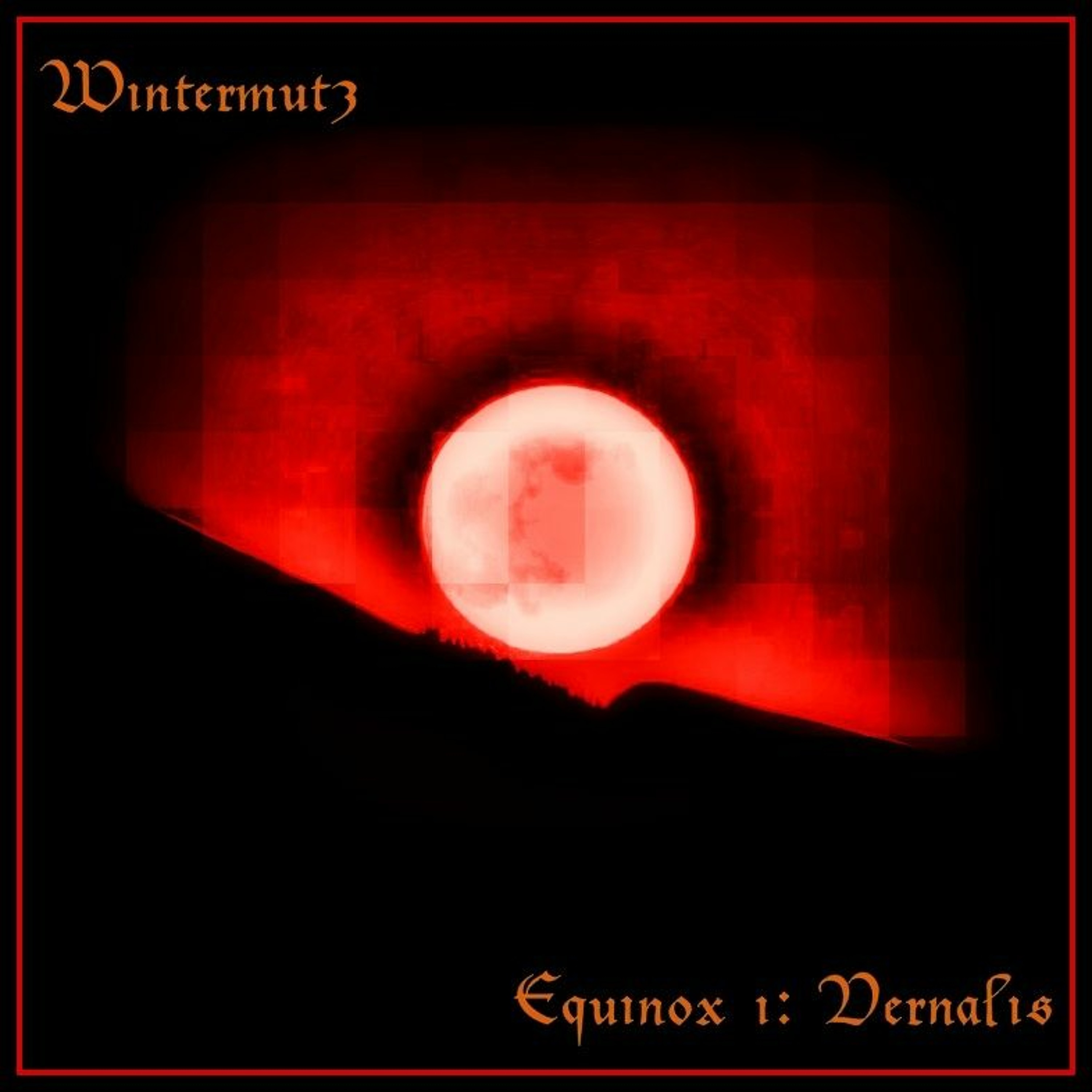
Wintermut3 MusicEquinox Ii: Ceteris Paribus in EquinoxA Progressive and somewhat experimental arual exploration of the Vernal, Autumnal equinoxes and all in between that is not "equinox" ("other things equal" is translation of "Ceteris Paribus" ) a major work indeed...
Update 1** As this trilogy is a complex beast a lot needed rethinking which I knew at release time that was an unavoidable... but I wanted also to not wait in releasing. This is what might be the final version of Part I: "Vernalis"...this version (version 5) has all the elements I imaged would be needed to open such an edgy and complex work--to entice without scaring away... but...
2019-03-2506 min
Ceteris Never Paribus: The History of Economic Thought PodcastPeter Boettke on F. A. Hayek, Episode 13Guest: Peter BoettkeHosted and produced by Erwin Dekker and Reinhard Schumacher
In this episode Erwin and Reinhard talk with Peter Boettke about his new book on Hayek, F.A. Hayek: Economics, Political Economy and Social Philosophy, published with Palgrave Macmillan. We discuss the various stages in Hayek’s work, Hayek’s relation to neoliberalism, Pete’s contra-Whig methodology for the history of economics (with a hat tip to Kenneth Boulding), Hayek’s relation to the Scottish Enlightenment, what it means to be an epistemic institutionalist, and the extent to which there was continuity between the early neoclassicals and the Austrian School...
2019-02-081h 11
Sökpodden#46 Ceteris paribusI årets första avsnitt av Sökpodden pratar vi om vad som är en bra CTR, Google Smart Shopping och videoannonser på Facebook. Lyssna gärna!
Nytt år, nya möjligheter! Så var det äntligen dags för årets första avsnitt av Sökpodden. Det 46:e i ordningen – och som vanligt bjuder vi på tre ämnen:
Vad är en bra CTR?
En vanlig fråga vi får på Pineberry är vad som är en bra CTR (klickfrekvens). Det är en bra och relevant fråga, men den är nästan omöjlig att svara på...
2019-01-2439 min
Ceteris Never Paribus: The History of Economic Thought PodcastAdam Leeds on the Development of Soviet and Russian Economics, Episode 12Guest: Adam LeedsHosted and produced by Reinhard Schumacher
In this episode, Adam Leeds talks with Reinhard about his thesis “Spectral Liberalism: On the Subject of Political Economy in Moscow”, for which Adam won the 2018 “Joseph Dorfman Best Dissertation Prize” awarded by the History of Economics Society. We talk about the development of Soviet and Russian economics and its relationship with politics starting from the late tsarist era, the Soviet Union under first Lenin and Stalin, the post-Stalin era, Gorbachev’s reforms, ending with the development in the 1990s and early 2000s. The topics we discuss include Adam’s research approach of oral hist...
2018-12-211h 16
Ceteris Never Paribus: The History of Economic Thought PodcastPaul Dudenhefer on Academic Writing, Episode 11Guest: Paul Dudenhefer
Hosted and produced by Reinhard Schumacher
In this episode, Reinhard talks with Paul Dudenhefer about academic writing, especially about writing English journal articles. The topics we discuss include the framing of an article, writing for an “Anglo-American audience", how to write clearly and entertainingly, how to avoid the curse of knowledge, how to get most out of feedback, and writing for a general audience.
Paul is a professional writer and editor. He was copy editor of the journal History of Political Economy (HOPE) for more than 15 years, until 2016. Currently, Paul is the managing editor of the journal Poli...
2018-11-2952 min
Who Is?Who is Richard Cantillon?Richard Cantillon (1680–1734) was perhaps the most important and influential economist of all time, though as Mark Thornton explains, few people have ever heard of him. Murray Rothbard called him the founding father of modern economics.
Cantillon was the world’s first economic theorist, and in his treatise we find much of what we call economics today. He developed a scientific and positive methodology, performed thought experiments, and created the ceteris paribus assumption. Also in his work we find value theory, opportunity cost, price theory, and entrepreneurship theory. Mark Thornton describes in detail one of Cantillon’s greatest achieve...
2018-06-2500 min
Ceteris Never Paribus: The History of Economic Thought PodcastIrwin Collier on Economics in the Rear-View Mirror, Episode 10Guest: Irwin Collier, Free University of Berlin
Hosted and produced by Reinhard Schumacher
In this episode Irwin Collier, professor of Economics at the John-F.-Kennedy Institute for North American Studies at the Free University of Berlin, talks about his project Economics in the Rear-View Mirror, which recently celebrated its third anniversary. On his website, Irwin is collecting and making available teaching resources used in economics programmes at US universities. These resources include syllabi, exams, and lecture notes. His project is covering the period from roughly 1870 – 1970. So far, the website features more than 750 artefacts, including documents from Joseph Schumpeter, Paul Samuelson, Rob...
2018-06-0454 min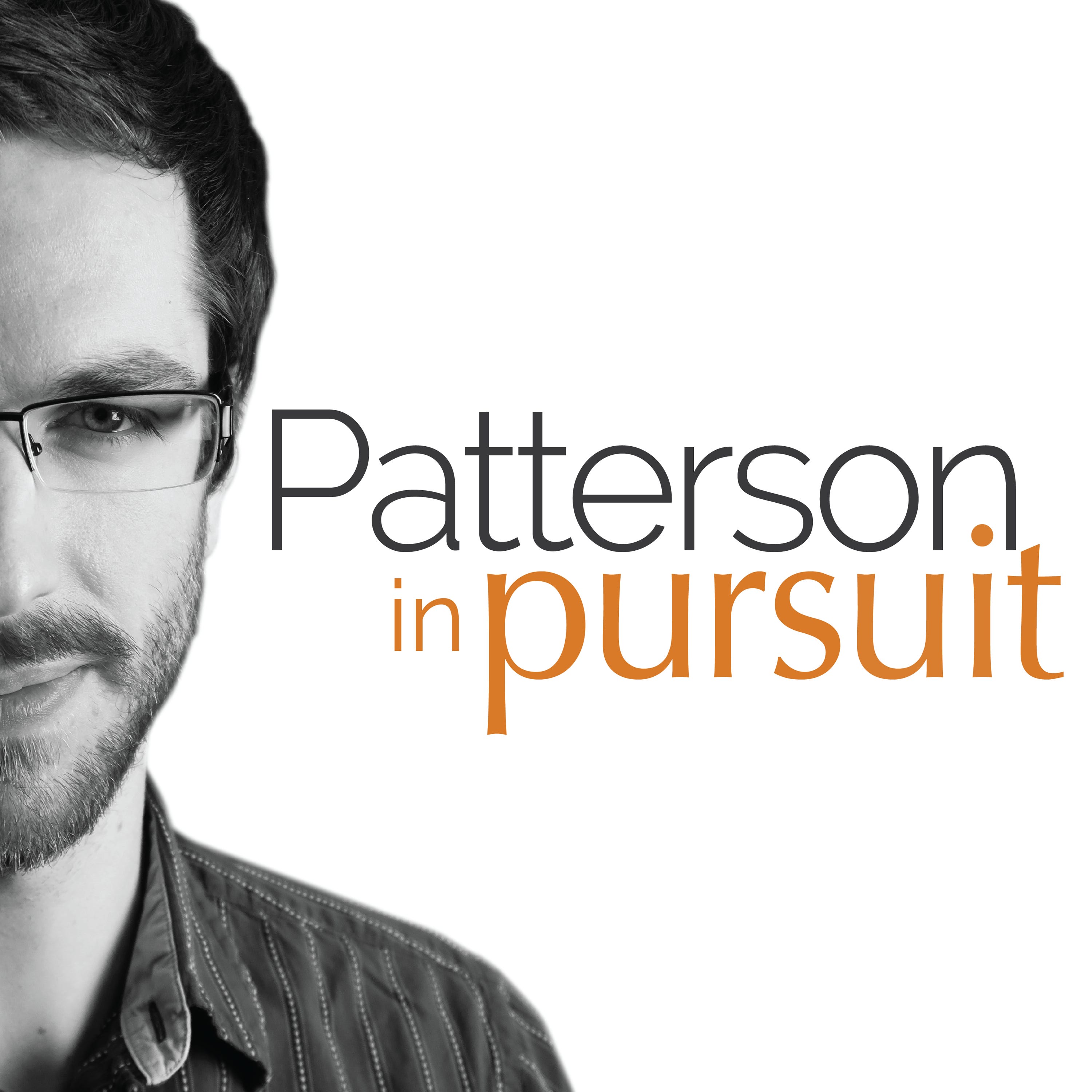
Patterson in PursuitThe Abuse of Apriorism in EconomicsThe purpose of this article is to point out where my fellow rationalists are being dogmatic, in particular, with regard to Austrian Economics. Philosophers like Hans-Hermann Hoppe tend to drop the "ceteris paribus" condition, turning true-but-neutered claims into false-and-dogmatic ones. Get full access to Steve Patterson's Substack at stevepatterson.substack.com/subscribe
2018-05-3121 min
Ceteris Never Paribus: The History of Economic Thought PodcastErwin Dekker on the Viennese Students of Civilization, Episode 9Guest: Erwin Dekker, Erasmus University RotterdamHosted and produced by Reinhard Schumacher
In this episode, Erwin Dekker talks about his book The Viennese Students of Civilization: The Meaning and Context of Austrian Economics Reconsidered. We discuss Erwin’s cultural approach to the history of economic thought in general, before Erwin talks about the cultural context and historical developments which he argues are important to understand the development of early Austrian economics from its beginning in the late 19th century until the emigration of Austrian scholars in the 1930s. The interview also covers how Austrian economists adapted to their exiles in the En...
2018-05-021h 15
Ceteris Never Paribus: The History of Economic Thought PodcastGareth Dale on the Life of Karl Polanyi, Episode 8Guest: Gareth Dale, Brunel University
Hosted and produced by Reinhard Schumacher
In this episode, Gareth Dale talks about his biography “Karl Polanyi: A Life on the Left”, which has recently been published in paperback. We discuss Polanyi’s childhood and youth in Budapest, his move to Vienna after the First World War, his escape from Austrofascism to first England and later North America, where he would write his main work The Great Transformation. We also talk about Polanyi’s relationship with his wife Ilona Duczyńska and his brother Michael Polanyi. We end the interview with some challenges of writing a biograp...
2018-03-011h 00
Ceteris Never Paribus: The History of Economic Thought PodcastProfessor Annie Cot on the Master 2 program “Economics and Social Sciences: Epistemology, Methodologies and Theories” at the University of Paris I Panthéon-Sorbonne, Episode 7Guest: Annie Cot, Université Paris 1 Panthéon-Sorbonne
Hosted and produced by Juan Acosta, Camila Orozco-Espinel, and Erich Pinzón-Fuchs
For this episode we interviewed professor Annie Cot, director of the Master 2 Économie et Sciences Humaines (épistémologie, méthodes, théories) at the University of Paris 1 Panthéon-Sorbonne. We talked about the origin and evolution of the Master, as well as the type of work that their students carry out and the academic environment that the faculty and PhD students provide.
References:
Recherche en Épistémologie et en Histoire de la Pensée Économique Récente (REhPERE)
Master 2 Histoire de la Pensée Écon...
2018-02-1028 min
Ceteris Never Paribus: The History of Economic Thought PodcastProfessor Medema on ‘ “Exceptional and Unimportant”? The Rise, Fall, and Rebirth of Externalities in Economic Analysis’ at the HPPE Seminar, Episode 6Guest: Steven Medema, Distinguished Professor of Economics at the University of Colorado Denver
Hosted and Produced: Christina Laskaridis
This episode features the Historical and Philosophical Perspectives on Economics (HPPE) seminar at LSE with Professor Steven Medema on "Exceptional and Unimportant"? The Rise, Fall, and Rebirth of Externalities in Economic Analysis that took place on 8th November 2017.
About the presenter:
Steven Medema is Distinguished Professor of Economics and Director of CU Denver's University Honors and Leadership Program. His research focuses on the history of twentieth-century economics, and his current project analyzes the origins, diffusion, and controversies over the Coase theorem in econ...
2018-01-2856 min
Ceteris Never Paribus: The History of Economic Thought PodcastDebjani Bhattacharyya on The Science of Planning: Notes from Indian Economic History at the HPPE Seminar, Episode 5Presenter: Debjani Bhattacharyya, Drexel University and Leiden University.
Hosted and produced by Maria Bach
This episode features the Historical and Philosophical Perspectives on Economics (HPPE) seminar at LSE with Debjani Bhattacharyya on The Science of Planning: Notes from Indian Economic History that took place on 15 November 2017.
About the presenter:
Dr. Debjani Bhattacharyya is Assistant Professor of History at Drexel University and Research Fellow of International Institute of Asian Studies at Leiden University. Her research focuses on modern South Asian history, urban environmental history, legal history and history of economic thought. She has one book in progress and published journal articles on the his...
2018-01-031h 17
Ceteris Never Paribus: The History of Economic Thought PodcastBruce Caldwell: HOPE Center, Economists’ Papers Archive, and Hayek Biography, Episode 4Guest: Bruce Caldwell, Duke University
Hosted and produced by Reinhard Schumacher and Juan Acosta
For this episode we interviewed Bruce Caldwell, director of the Center for the History of Political Economy (HOPE Center) at Duke University and general editor of the Collected Works of F. A. Hayek. In the first part of the interview we talk about the history of the Center, its activities, and the Economists' Papers Archive, a collection of papers of notable economists held at Duke's Rubenstein Library. In the second part we talk about Bruce's work as the general editor of Hayek's collected works and about h...
2017-11-241h 01
Ceteris Never Paribus: The History of Economic Thought PodcastProf. Erik Reinert: “80 Economic Bestsellers before 1850: A Fresh Look at the History of Economic Thought”, Episode 3Guest: Professor Erik Reinert, Tallinn University of Technology, Estonia & the Other Canon Foundation.
Hosted and produced by Maria Bach
This episode is a recording of a webinar organised by The YSI INET History of Economic Thought, Economic Development, Economic History and Latin America Working Groups – special thanks to Daniel Munevar whose voice you hear at the beginning.
In this webinar, Professor Erik Reinert presents his paper on the "80 Economic Bestsellers before 1850: A Fresh Look at the History of Economic Thought".
ABSTRACT: The paper studies the economics books which – judged by the number of editions – were the most influential between 1500 and 1849, and comp...
2017-11-1059 min
Ceteris Never Paribus: The History of Economic Thought PodcastDiscussing Methods: The History of Economic Thought as the History of Practices with Thomas Stapleford, Episode 2Guest: Thomas Stapleford, University of Notre Dame
Hosted and produced by Maria Bach
Additional interviewer: Christina Laskaridis
Additional guests: Gonçalo L. Fonseca and Peter H. Bent
In this episode, we briefly talk about methods in the History of Economic Thought, before discussing with Thomas Stapleford his paper Historical Epistemology and the History of Economics: Views Through the Lens of Practice. In this paper, Stapleford argues for approaching the history of economic thought as a history of practices. This paper was also on of the topic of a one-day workshop for young scholars organised this May by Maria and Reinhard befo...
2017-10-1252 min
Ceteris Never Paribus: The History of Economic Thought PodcastIntroducing Ceteris non Paribus: The History of Economic Thought Podcast, Episode 1In this short introductory episode, we shortly outline the objectives of this podcast and explain the name Ceteris non Paribus. We are a group of young scholars starting a podcast in the history of economic thought and you'll hear the voices from the following young scholars in this episode:
Maria Bach, PhD Student at King's College London
Reinhard Schumacher, PostDoc at the University of Potsdam
Erwin Dekker, Assistant Professor at the Erasmus University Rotterdam
Camila Orozco Espinel, PhD Student at the École des Hautes Études en Sciences Sociales in Paris
Juan Carlos Acosta, PhD Student at the University of Lille 1
Jérô...
2017-10-1103 min
Monday Morning MojoEpisode 283: Trust And Character On June 9th, 2017 – only four short days from today – is a day many believe will live in infamy. This Friday is the DOL Fiduciary Rule implementation day, and it is a day making headlines in the financial news – carrying a multitude of questions for advisors and financial firms alike. How will the Fiduciary Rule evolve business practices? What impact will the rule have on our future and current relationships with clients? These are excellent questions many of us are asking, but perhaps this rule is not as earth-shattering as we seem to think. This Monday Morning, we are taking a moment to...
2017-06-0504 min
Modern Marketing PodcastThe Power of Pricing - How Higher Prices Lead to Happier Customers | #014 Too much? Not enough? Just right? Some would favor having a few molars pulled over having to think about what price to put on the tags of their service or product. Pricing is a topic worthy of controversial chatter and has the tendency to spark some serious debate. Adam breaks down pricing strategies, practices his Latin, and explains why you should put the brakes on pricing too low. Episode discussion: 3 different strategies to pricing The benefits of value-based pricing Adam’s Latin: Ceteris Paribus Why focu...
2016-12-0111 min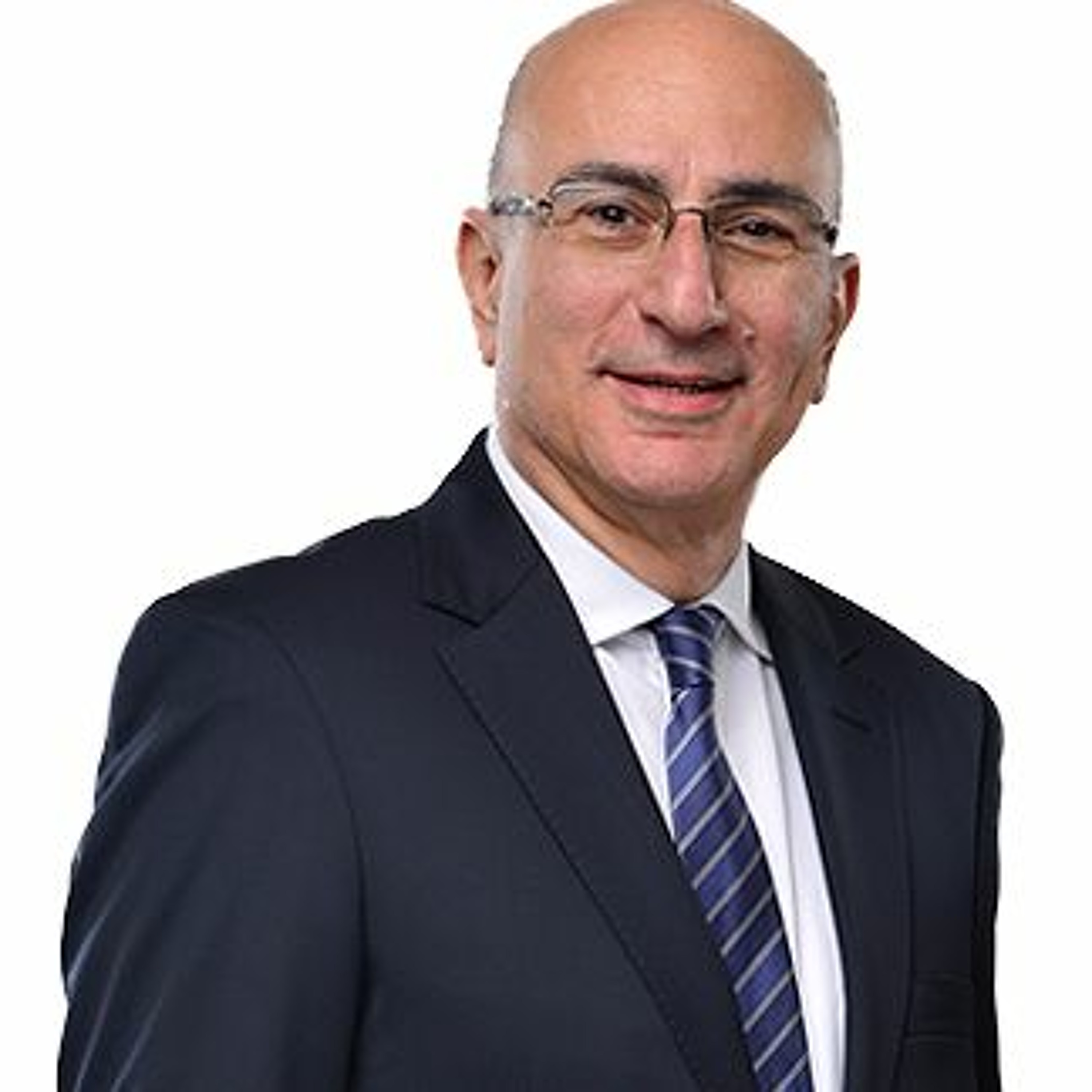
Ekonomi DersleriMahfi Eğilmez'le Ekonomi Dersleri - Ceteris Paribus - 3 Haziran 2016Mahfi Eğilmez'le Ekonomi Dersleri - Ceteris Paribus - 3 Haziran 2016 by NTVRadyo
2016-06-0301 min
New Books in LanguageDaniel Cloud, “The Domestication of Language” (Columbia UP, 2014)One of the most puzzling things about humans is their ability to manipulate symbols and create artifacts. Our nearest relatives in the animal kingdom–apes–have only the rudiments of these abilities: chimps don’t have language and, if they have culture, it’s extraordinarily primitive in comparison to the human form. What we have between apes and humans is not really a continuum; it’s a break. So how did this break occur? The answer, of course, is evolutionarily. It stands to Darwinian reason that our distant ancestors must have been selected for symbolic use and cultural production, and it was...
2014-12-1656 min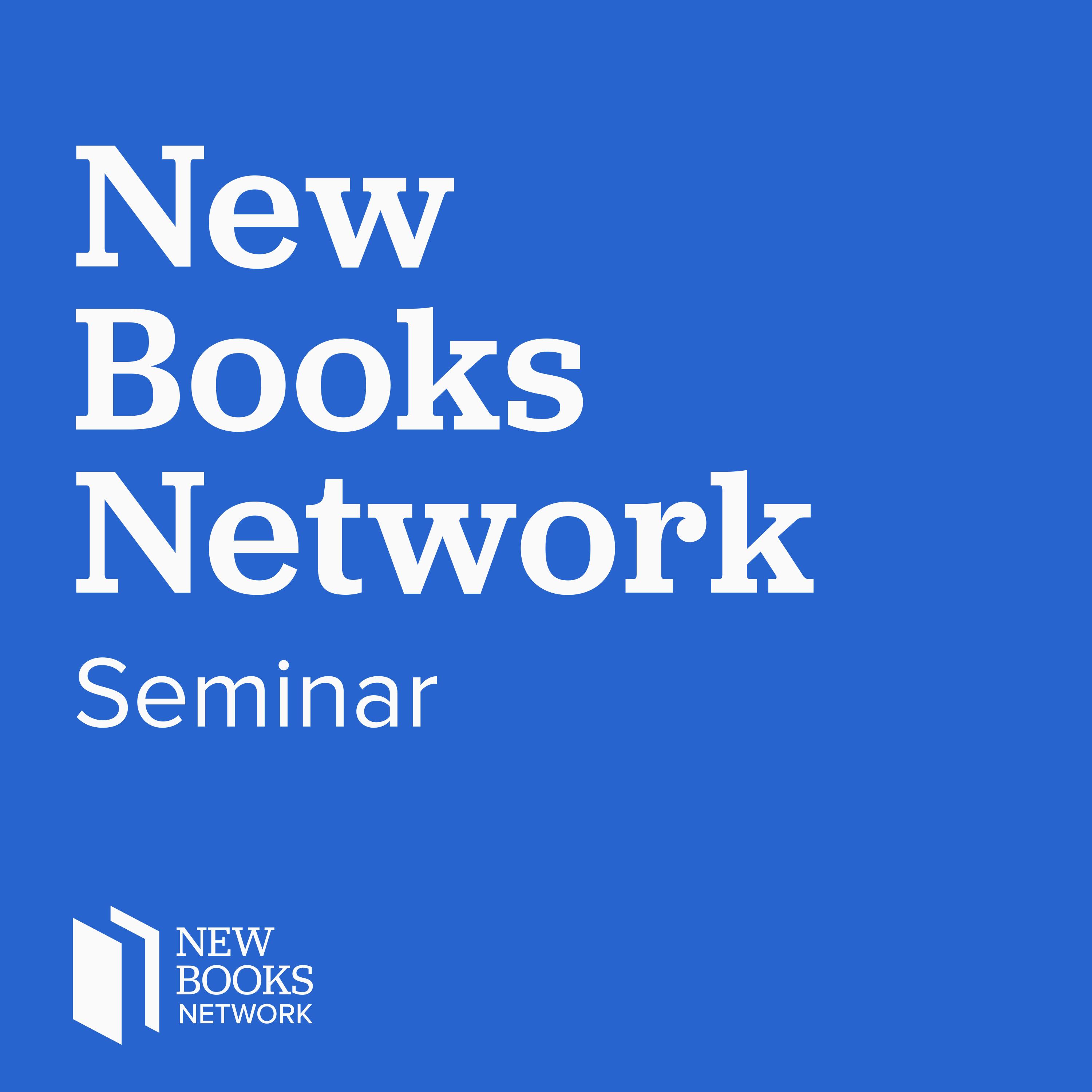
NBN SeminarDaniel Cloud, “The Domestication of Language” (Columbia UP, 2014)One of the most puzzling things about humans is their ability to manipulate symbols and create artifacts. Our nearest relatives in the animal kingdom–apes–have only the rudiments of these abilities: chimps don’t have language and, if they have culture, it’s extraordinarily primitive in comparison to the human form. What we have between apes and humans is not really a continuum; it’s a break. So how did this break occur? The answer, of course, is evolutionarily. It stands to Darwinian reason that our distant ancestors must have been selected for symbolic use and cultural production, and it was...
2014-12-1656 min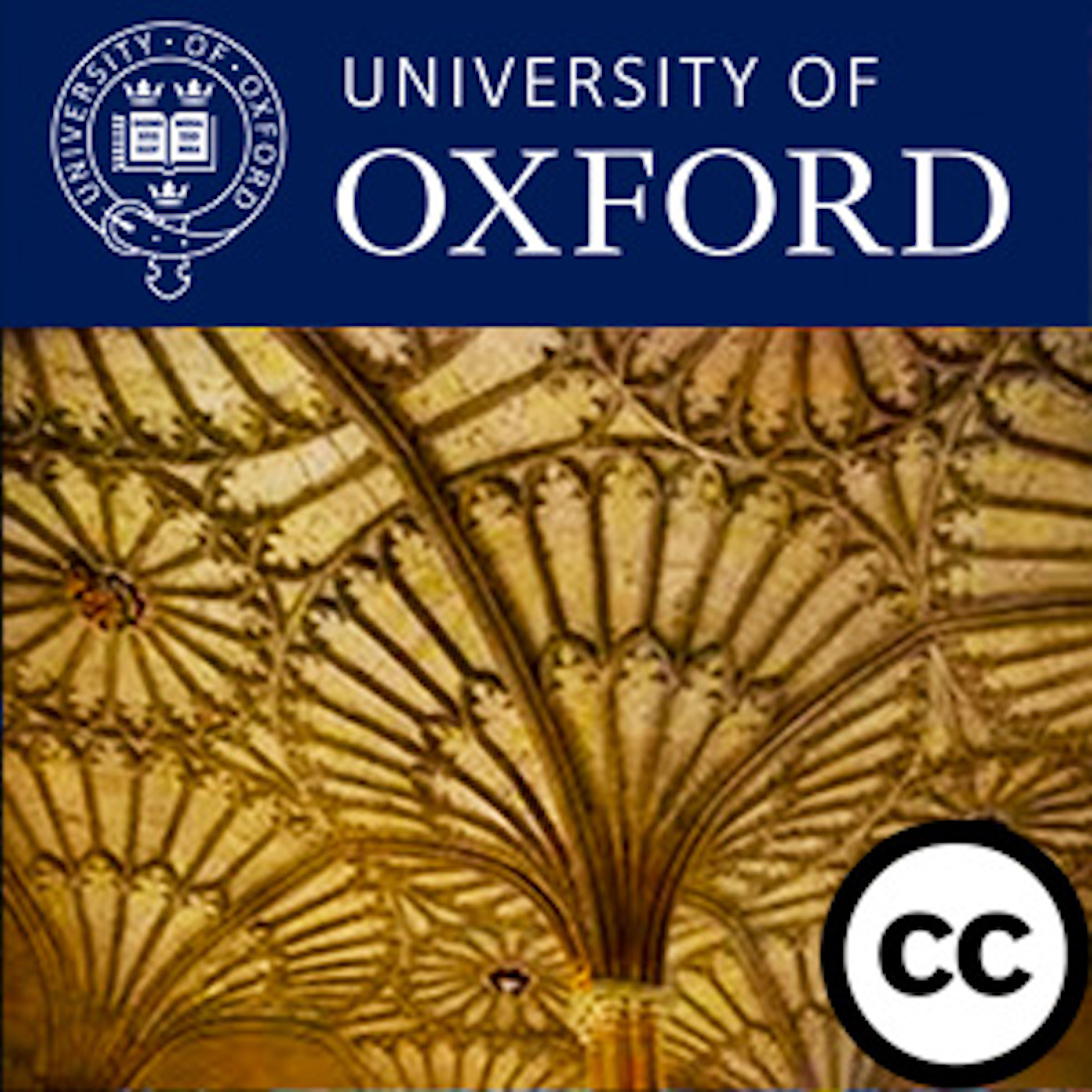
Power Structuralism in Ancient OntologiesCausal Production as Interaction: a Causal Account of Persistence and GroundingRögnvaldur Ingthorsson (Lund University) gives a talk for the Power Structuralism in Ancient Ontologies podcast series Abstract: In this talk I will elaborate on the naturalist theory of causation that I first presented in ‘Causal Production as Interaction’ (2002). In the course of presenting the view I will elucidate in what sense the account (i) presents causation as a necessary process of production without appeal to ceteris paribus clauses, (ii) explains the connection between causation and counterfactuals without appeal to a possible worlds ontology, (iii) does not suffer from the problem of action at a temporal distance, (iv) can exclude the p...
2014-05-0755 min
ONYX TVCeteris Paribus - All Things Being EqualMy college degree is in Information Systems. I love computer systems. As an IT professional, I have found that my edge comes from my understanding of how systems work. Because I understand the system's processes end to end, I am easily able to decipher when something is wrong, and what the "culprit" is. What it takes others 3 hours to fix, I can fix in 3 minutes, because I know how it should work - all things being equal. In order for me to know how things work, I have to spend time going through the manual and ensuring that...
2013-08-2500 min
Podcast Radio AguilarEntrevista a los grupos "Ceteris Paribus", "Alther Ego" y "Antecessor"Entrevista a los grupos “Ceteris Paribus” (Aguilar de Campoo), “Alther Ego” (Burgos) y “Antecessor” (Burgos) con motivo de su actuación en la localidad el viernes 1 de junio de 2012. En concreto, la banda Alther Ego pondrá la banda sonora al cortometraje “Oscuridad Blanca”, que durante ese fin de semana se rueda en la villa norteña.
2012-06-0130 min